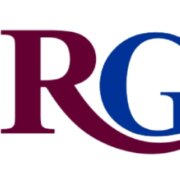Best Juvenile Law Lawyers in Gaborone
Share your needs with us, get contacted by law firms.
Free. Takes 2 min.
List of the best lawyers in Gaborone, Botswana
About Juvenile Law in Gaborone, Botswana
Juvenile Law in Gaborone, Botswana, focuses on the legal aspects surrounding minors under the age of 18. This branch of law deals with the treatment and handling of juveniles involved in criminal activities or those requiring protection due to various vulnerabilities. The fundamental purpose of Juvenile Law is to rehabilitate young offenders rather than to punish them while ensuring their rights and welfare are prioritized.
Why You May Need a Lawyer
There are several situations where individuals may require legal assistance in the field of Juvenile Law:
- Criminal Charges: When a minor is accused of committing a crime, such as theft, assault, or drug-related offenses.
- Child Protection: In cases where a child's welfare is at risk due to neglect, abuse, or exploitation.
- Custody Disputes: Legal conflicts concerning the custody and guardianship of minors.
- Adoption Procedures: Legal proceedings related to the adoption of a child.
- Child Support: Disputes and legal requirements surrounding child maintenance and financial support.
Local Laws Overview
The legal framework governing juveniles in Botswana, including Gaborone, is encapsulated in several key statutes:
- Children's Act (2009): This act provides comprehensive measures for the protection of children’s rights, including those related to their care, welfare, and protection from abuse and exploitation.
- Penal Code: Specifies the legal age of responsibility, the various offenses minors can be charged with, and the penalties applicable to juvenile offenders.
- Juvenile Courts Act: Establishes the procedures and jurisdiction of juvenile courts handling cases involving minors.
- Education Act: Mandates compulsory education and outlines the responsibilities of guardians and the state concerning a child’s education.
Frequently Asked Questions
1. What is the age of criminal responsibility in Gaborone, Botswana?
The age of criminal responsibility in Botswana is 10 years old. A child under this age is considered incapable of committing a crime.
2. What happens if a juvenile is arrested for a crime?
If a juvenile is arrested, they are typically taken to a juvenile detention center, and their case will be handled by the juvenile court system. Efforts are made to ensure that their rights are protected, and the focus is often on rehabilitation.
3. Can minors be tried as adults in Botswana?
In certain serious offenses, juveniles over the age of 14 may be tried as adults, depending on the severity of the crime and other circumstances as determined by the court.
4. What legal protections do juveniles have during court proceedings?
Juveniles have the right to legal representation, the right to a fair trial, and the right to have their privacy protected during court proceedings.
5. What role do parents or guardians play in juvenile court cases?
Parents or guardians are typically required to be present during court proceedings and may be involved in decisions about the juvenile’s rehabilitation and care.
6. How does the court determine the best interests of the child?
The court considers various factors, including the child’s physical, emotional, and educational needs, as well as the child’s own views and any potential risks to their welfare.
7. What should you do if you suspect a child is being abused or neglected?
You should report any suspicions of child abuse or neglect to the appropriate authorities, such as the police or the Department of Social Services, so that they can investigate and take action to protect the child.
8. Can juveniles receive a sentence of imprisonment?
Yes, juveniles can be sentenced to imprisonment, but usually under conditions different from adult offenders, with an emphasis on rehabilitation, education, and social reintegration.
9. Are there diversion programs available for juvenile offenders?
Yes, there are diversion programs aimed at educating and rehabilitating juvenile offenders to prevent reoffending. These may include counseling, community service, and participation in educational programs.
10. What is the process for adopting a child in Botswana?
The adoption process involves several legal steps, including a home study, background checks, and court approval. Prospective adoptive parents must meet specific legal requirements and demonstrate the ability to provide a stable and loving home.
Additional Resources
Here are some valuable resources and organizations that can provide assistance and information about Juvenile Law in Gaborone, Botswana:
- Department of Social Services: They handle matters related to child protection and welfare.
- Juvenile Courts: Provide information and assistance related to juvenile criminal cases.
- Legal Aid Botswana: Offers legal advice and representation for those who cannot afford it.
- Botswana Police Service: For reporting crimes and seeking assistance in cases involving juveniles.
- NGOs and Support Groups: Various non-governmental organizations offer support and advocacy for children’s rights and welfare.
Next Steps
If you need legal assistance in Juvenile Law, here are the steps you should take:
- Consult a Lawyer: Seek the advice of a lawyer who specializes in Juvenile Law to understand your rights and the legal options available.
- Gather Documentation: Collect any relevant documents, such as police reports, court notices, and medical records, that may be useful for your case.
- Contact Relevant Authorities: Engage with governmental bodies such as Social Services or the Juvenile Court to report issues or follow up on cases.
- Seek Support: Connect with support groups and NGOs for assistance, counseling, and additional resources.
- Stay Informed: Educate yourself about the laws and procedures relating to juvenile cases to better navigate the legal process.
Lawzana helps you find the best lawyers and law firms in Gaborone through a curated and pre-screened list of qualified legal professionals. Our platform offers rankings and detailed profiles of attorneys and law firms, allowing you to compare based on practice areas, including Juvenile Law, experience, and client feedback.
Each profile includes a description of the firm's areas of practice, client reviews, team members and partners, year of establishment, spoken languages, office locations, contact information, social media presence, and any published articles or resources. Most firms on our platform speak English and are experienced in both local and international legal matters.
Get a quote from top-rated law firms in Gaborone, Botswana — quickly, securely, and without unnecessary hassle.
Disclaimer:
The information provided on this page is for general informational purposes only and does not constitute legal advice. While we strive to ensure the accuracy and relevance of the content, legal information may change over time, and interpretations of the law can vary. You should always consult with a qualified legal professional for advice specific to your situation.
We disclaim all liability for actions taken or not taken based on the content of this page. If you believe any information is incorrect or outdated, please contact us, and we will review and update it where appropriate.













